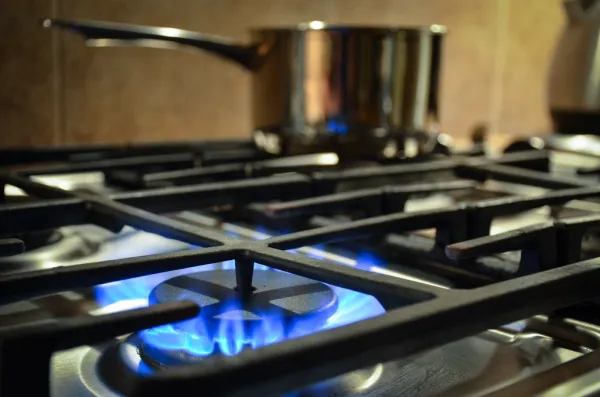How Gas Stoves Started a Culture War
At the beginning of February, Florida Gov. Ron DeSantis announced his proposed $115 billion state budget to the legislature. Among a host of tax cuts on common household items was a permanent sales tax exemption for gas stoves. DeSantis argued it was necessary as the federal government “wants your gas stove.”
The proposal was part of a conservative uproar in response to a statement by US Consumer Product Safety Commissioner Richard Trumka where he suggested stronger regulations on gas stoves.
“Products that can’t be made safe can be banned,” Trumka said in a Bloomberg interview.
Despite the agency clarifying that a ban was not currently in the works, social media flared up with posts from conservative influencers and Republican politicians defending gas stoves and portraying a possible ban as government overreach. Many used the pro-gun slogan “come and take it!” in support of gas stoves. Florida Gov. Ron DeSantis posted the “don’t tread on me” flag with the snake replaced by a gas stove.
Gas stoves have many documented risks and dangers relating to the gasses they use leaking. ProPublica reported on gas stoves’ use of methane, a greenhouse gas up to 80 times stronger than carbon dioxide, is the primary fuel for gas stoves and leaks regularly. Large enough methane leaks can actually cause explosions. Nitrogen oxide and benzene can also leak, and they’ve been linked to asthma and cancer respectively.
These risks have led to calls to replace gas stoves – along with gas furnaces and gas water heaters – with electric alternatives. Nearly a hundred local governments across the country have adopted measures to phase out natural gas. Recent New York building codes require all electric-appliances on new buildings, for example.
Regulations on natural gas have faced opposition before, but it hasn’t usually been in the form of viral memes. Most has come in the form of lobbying by the gas industry, with tactics like pushing for restrictions against clean building codes or flooding city planning meetings with industry reps. One of the industry’s most pervasive tactics is more indirect: advertising.
Since the 1930s, gas utilities companies have promoted gas stoves as the superior, fancier way to cook compared to electric. They even coined the slogan “cooking with gas” which became ubiquitous throughout pop culture.
As climate change and the health risks from gas have become better understood, gas stove marketing has become not only a way to promote the companies’ products, but to shape public opinion against regulations. Polls have shown that most consumers don’t have strong opinions about whether their water heaters and furnaces are powered by gas or electric, so stoves have become the industry’s vehicle for promoting gas as a whole.
In recent years, the industry has tried getting savvier with their ads. They’ve been known to sponsor social media influencers to post about how gas stoves are “super cool” while ignoring the risks. They’ve also targeted communities considering gas regulations with robocalls claiming they’ll increase utilities rates.
In one incident reported on by Mother Jones, a public relations group for a California gas company targeted a small neighborhood social media page with a post warning of incoming regulations, written by an account manager who didn’t even live in the neighborhood.
These advertising efforts seem to have paid off, as the recent controversy sprung up free of charge. Trumka’s interview was taken out of context to portray the Biden administration as seeking an intrusive policy forcefully taking people’s stoves against their will.
Narratives of regulation as overreaching and unreasonable are common, and popular. These kinds of partisan posts can get millions of views and build careers for influencers that specialize in building narratives.
“If it’s paying the bills, that’s a pretty good incentive for most people, I think. Especially if it’s giving you power and access to big amounts of influence,” said political polarization researcher Jared Holt in an interview with NPR.
Republicans turned the anger into legislation fast. Besides DeSantis’ budget, Time reported on the Guard America’s Stoves (GAS) and Stop Trying to Obsessively Vilify Energy (STOVE) Acts that were introduced in the House.









